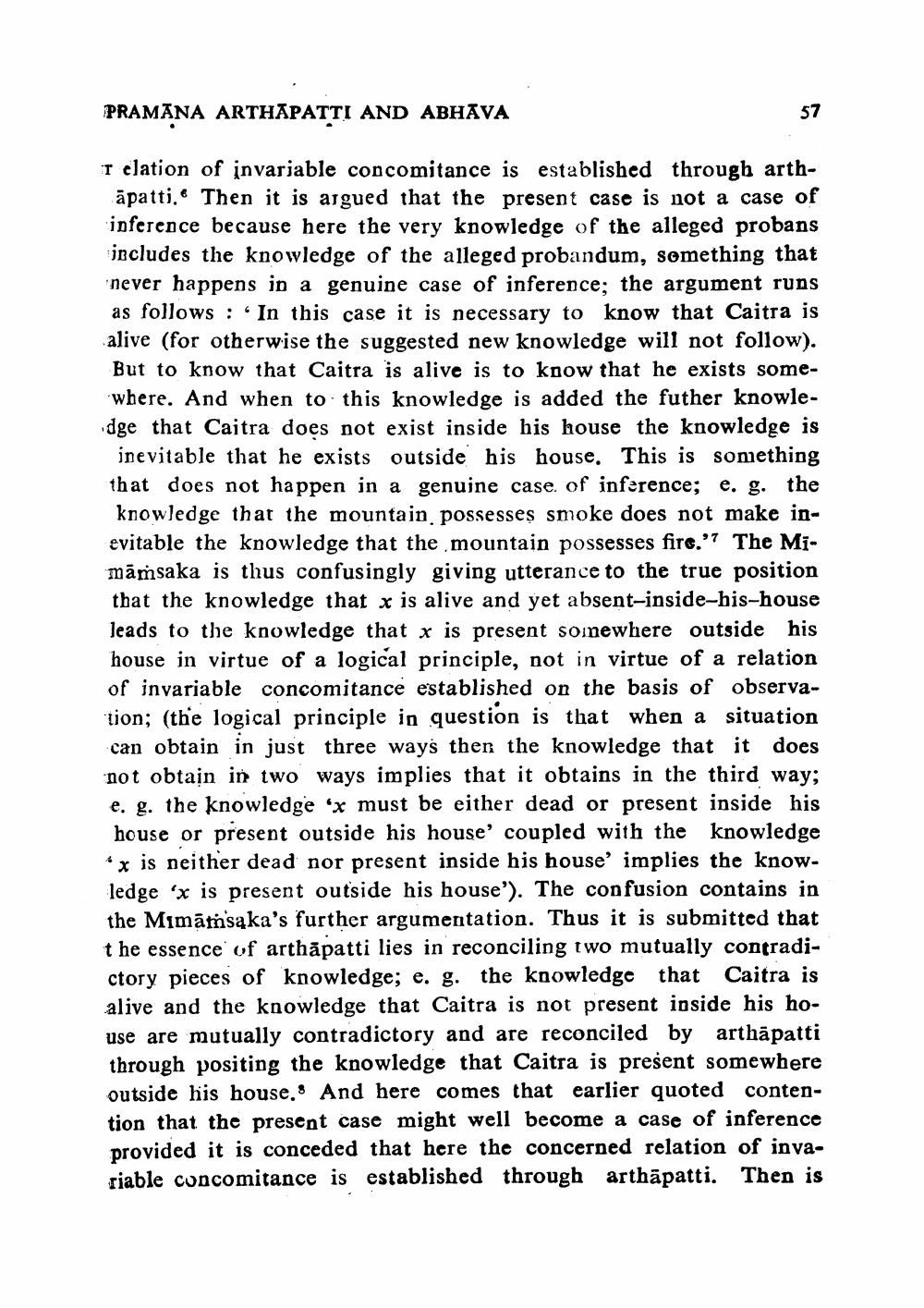________________
PRAMANA ARTHAPATTI AND ABHAVA
I elation of invariable concomitance is established through arth
āpatti. Then it is argued that the present case is not a case of inference because here the very knowledge of the alleged probans jncludes the knowledge of the alleged probandum, something that never happens in a genuine case of inference; the argument runs as follows : In this case it is necessary to know that Caitra is alive (for otherwise the suggested new knowledge will not follow). But to know that Caitra is alive is to know that he exists somewhere. And when to this knowledge is added the futher knowledge that Caitra does not exist inside his house the knowledge is
inevitable that he exists outside his house. This is something that does not happen in a genuine case of inference; e. g. the knowledge that the mountain possesses smoke does not make inevitable the knowledge that the mountain possesses fire.'? The Mimāmsaka is thus confusingly giving utterance to the true position that the knowledge that x is alive and yet absent-inside-his-house leads to the knowledge that x is present somewhere outside his house in virtue of a logical principle, not in virtue of a relation of invariable concomitance established on the basis of observation; (the logical principle in question is that when a situation can obtain in just three ways then the knowledge that it does not obtain in two ways implies that it obtains in the third way; e. g. the knowledge 'x must be either dead or present inside his house or present outside his house' coupled with the knowledge *x is neither dead nor present inside his house' implies the knowledge 'x is present outside his house'). The confusion contains in the Mımām'saka's further argumentation. Thus it is submitted that t he essence of arthāpatti lies in reconciling two mutually contradictory pieces of knowledge; e. g. the knowledge that Caitra is alive and the knowledge that Caitra is not present inside his house are mutually contradictory and are reconciled by arthāpatti through positing the knowledge that Caitra is present somewhere outside his house.' And here comes that earlier quoted contention that the present case might well become a case of inference provided it is conceded that here the concerned relation of invariable concomitance is established through arthāpatti. Then is




